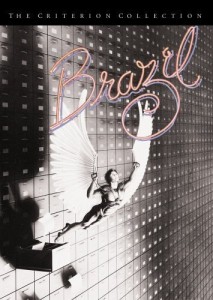 Does the government have the right to know where you are at all times? This is a question that will be answered by the Supreme Court over the next year. The Wall Street Journal reports that the Supreme Court will examine today a case in which the police and the FBI attached a GPS tracking device to the car of a night club owner who was suspected of dealing drugs. At issue is whether this constituted an unreasonable search or seizure by the government, a violation of the Fourth Amendment of the U.S. Constitution.
Does the government have the right to know where you are at all times? This is a question that will be answered by the Supreme Court over the next year. The Wall Street Journal reports that the Supreme Court will examine today a case in which the police and the FBI attached a GPS tracking device to the car of a night club owner who was suspected of dealing drugs. At issue is whether this constituted an unreasonable search or seizure by the government, a violation of the Fourth Amendment of the U.S. Constitution.
As the article points out, the Fourth Amendment protects us only from the government eye when there is some reasonable expectation of privacy. That which occurs on the street in plain view is not usually considered private. However, in this case, the question is whether the body of evidence gathered by the police would be considerably more than just some onlooker happening to see you at a particular point in time. Instead, it would be more like an concerted army of people following you 24 hours per day for as long as the GPS unit were in place.
From a technology perspective, while it may be possible to detect such tracking devices, it might prove very difficult. For one thing, there’s no reason the device would need to signal to the police every moment of the day where it is. Rather it could store the information and transmit it only periodically.
What’s more, we all carry tracking devices with us nearly 24 hours per day. They’re called cell phones. While some use GPS, the cell phone network knows where you are (or at least where your phone is), with or without GPS.
Here are my questions:
- Does the government need a warrant to receive cellular network location data? If so, what is the difference between cellular network location data and GPS tracking data?
- If the government has the right to install a tracking device, assuming you could find the device, do you have the right to remove it? After all, it is your vehicle.
- If the government has the right to track you via GPS, can others do the same? What is to stop insurance companies, employers, or criminals from tracking you?
It’s the first question I find most profound, because if the government is allowed to attach these devices to you without a warrant, without any cause, they can follow anyone from anywhere to anywhere at any time, from birth to death. In fact, they could create an enormous database to simply keep track of the location of everyone.
This is not to say that the government shouldn’t track people it reasonably believes to be criminals. That is why the judiciary exists- to provide oversight over the process so that peoples’ rights can be balanced.
One final scary thought: such a database might already exist, and might be in the hands of criminals. As I wrote above, cellular companies already know where you are. If they’ve been hacked and don’t know it, who knows where that data resides?


 The BBC
The BBC